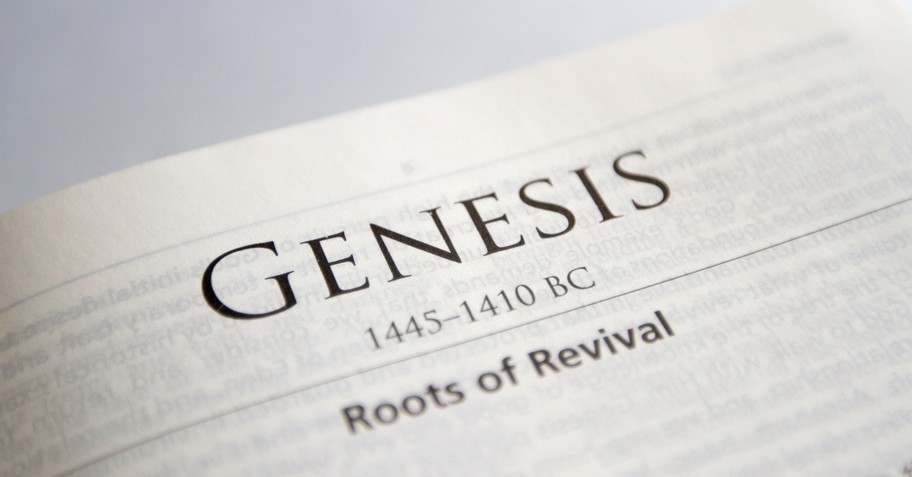Human sexuality is a complex and often difficult topic to discuss in our world today. The practice of homosexuality has become much more celebrated in western society and it has caused tremendous conversation to be kindled around the shifting morality of our times. Many Christians today begin to wonder what the Bible really says about homosexuality.
Authors of the Bible came from many different times, places, social strata, and cultural expressions. Yet, the message of the Bible is unified in its prohibition of homosexual practice. The unity of this message should tell us that this is something that God has not changed His mind about, and we need to pay attention carefully. Let us remember that God intends good for our lives and often His prohibitions in the Bible are to protect us from harm.
Our intent here is to present how the Bible speaks on the very sensitive matter of homosexuality, not to be ammunition for divisive arguments.
Photo credit: ©Getty Images/pamela_d_mcadams

Does the Bible Say Homosexuality a Sin?
Plainly speaking, the Bible tells us that the practice of homosexuality is a sin. It is something that God forbids and has repeatedly stated is outside of His plan for human sexual expression.
However, it is not a sin to have same-sex feelings. The key in this situation is to practice celibacy. Sexuality is a very core part of human existence; in fact it is the first command humanity receives from God in Genesis 2:24:
"That is why a man leaves his father and mother and is united to his wife, and they become one flesh."
Along with that command is the idea that sexuality is about reproducing human life. This is not just limited to animal life, but specifically those that bear the holy image of God. That process is sacred and guarded by the covenant of marriage. When we strip the reproductive purpose from our sexuality, all we are doing is making it an act of pleasure and self-satisfaction. At that point, we make sex about the specific act of copulation and not the life of responsibility that should go along with it.
There is much more to sex than the moments of pleasure. If we cannot pledge to God that we are willing to abide by his rules of conduct in our sexuality, then the best thing we can do is to devote ourselves more deeply to our relationship with Him and wait until God clears things up for us.
Photo credit: Unsplash/Joshua Ness

What Does the Old Testament Say about Homosexuality?
Human Sexuality Guidelines - Genesis 2:24
Human sexuality has a purpose that is beyond just the moments of pleasure. The expression of sexuality is coupled with the command to produce more of the bearers of God’s image. This is a sacred task that is protected by the covenant of marriage and is a lifetime of devotion and responsibility for that married couple.
Paul describes the relationship between Jesus and the church as one between a husband and wife (Ephesians 5:22-33). It is the ideal of an eternal, fruit-producing relationship. Reducing human sexuality to the physicality of sex and pleasure moves it outside of the guidelines that God has placed on it and makes it less than it is supposed to be.
Sodom and Gomorrah - Genesis 19:4-6
Sodom and Gomorrah have become the byword for wickedness. This story shows us why. All of the men of the city were consumed with lust to the point that visitors to the city could not expect to be treated with hospitality, but rather with violation. Their society was debauched and had gotten the attention of God (see Genesis 18:20-21) because of their wickedness.
Here we see the first ideas that the prevalence of homosexuality in a society is a sign of their overall wickedness and that God will pass judgement on them. Homosexual practice is not the only behavior listed in this passage as wicked, but it is the one that would shock the ancient reader of this text the most.
Photo credit: ©SparrowStock

Mosaic Law - Leviticus 18:22, Leviticus 18:24-25, Leviticus 20:13, Leviticus 20:22-23
These verses help us immensely as they describe the specific practice that is at issue here. Many arguments exist today because the ancient Hebrew writers did not use a single word for “homosexuality,” and it is claimed that this is a valid reason to question the Bible’s authority to inform us on this topic.
The Hebrew writers used phrases instead. They defined the action as “when a man lies with another man as with a woman.” This is understood to be sexual intercourse. It is very plain and unambiguous in its word usage. Leviticus 18:22 and Leviticus 20:13 describe the practice and each is followed by a passage (Leviticus 18:24-25, Leviticus 20:22-23) that reinforces the notion that there is judgement from God for the society that condones these practices. If there is a pattern that repeats like this in the Bible, it is very much worth paying attention to as it represents a consistent expression of God’s will in a particular area.
Tragedy of the Tribe of Benjamin - Judges 19-21, Judges 19:22
This is a very difficult story in the Bible. Be warned, that if you read it, it has more horror, death, and tragedy than most movies that Hollywood puts out. It is very graphic in places. At its root though is an event where a group of men from the tribe of Benjamin attempt to homosexually rape a Levitical priest. The end result is that most of the men of the Jewish tribe of Benjamin are wiped out.
The big picture is where it is placed in the book of Judges. Judges starts out with everything going fine as the new Israel is being created as a nation. The more that the book progresses, the more the people get away from God and following the Law of Moses. The end state is a rise of homosexual practice that causes a localized civil war among the tribes of Israel. Again, we see the idea that homosexuality in a society arises when a nation moves away from God and that judgement will follow.
Photo credit: Pixabay/jeffjacobs1990

What Does the New Testament Say about Homosexuality?
Result of Godlessness - Romans 1:18-32
This is a direct discussion by Paul of the descent of a society into depravity once it has rejected God (Romans 1:21). The end result of this is a rise of social constructs where same-sex practice is celebrated rather than what God has established for sexual expression. It is an executive summary of the pattern that we see in the Book of Judges and should be noted for its warning that God will bring judgement and punishment on that society.
Also, to be noted is that while it addresses issues in society, the following passage in Romans 2:1-4 reminds the reader that we are not the judges in these moments, rather we must be careful of God’s wrath while we live in such societies so that we do not discredit God as hypocrites.
No Inheritance in the Kingdom of God - 1 Corinthians 6:9-10
Paul writes a condemnation against the practitioners of specific activities in this passage. The language is very specific in verse nine that men that practice homosexuality are part of this and they will not inherit the kingdom of God. I wish there was a friendlier way to express this, but Paul is very concise here and there is no wiggle room. Perhaps another take-away from this is that we must be very serious about sin in our lives.
Unholy Practice - 1 Timothy 1: 8-11
Here is another scripture that Paul uses as instruction. Timothy is informed of the sins that defy sound doctrine and are still bound under the precepts of Mosaic Law. People that practice homosexuality are on the list. As Paul is instructing Timothy as a church leader, it can be instructional to church leaders today as we seek to faithfully guide the churches in which we serve.
Photo credit: ©Getty Images/fizkes

Does Jesus Address the Issue of Homosexuality?
Jesus himself does not come out and directly condemn homosexuality, nor does he support it. However, on issues of human sexuality, Jesus either affirms the Jewish understanding of appropriate human sexual practice or he places stronger restrictions on existing Jewish sexual customs (specifically divorce, Matthew 19:9). This affirmation of traditional Jewish understanding includes homosexuality. Jesus was never afraid to challenge a tradition or belief that did not align with the direction that God was taking humanity.
There was an opportunity for Jesus to address the issue. In Matthew 11:7-8, Jesus is confronting people’s expectations about his cousin John the Baptist. In his challenge, he asks if people were expecting John to be a man that “wears soft clothes.” The Koine Greek word for that phrase is “malakos” and it translated euphemistically as “wears soft clothes.” Its actual meaning is an effeminate homosexual male (adult, child, or prostitute). Jesus associates this practice with the houses of kings and the wealthy who he often identified as oppositional to God’s kingdom.
This continues the idea that a proliferation of homosexual practice in a society has to do with the direction that a nation is taking in regard to following God. While not using direct language, this is evidence that Jesus did not view the practice of homosexuality as acceptable.
Does God Hate Homosexual People?
God does not hate homosexual people. They are created in the image of God and are precious, just like everyone else. In fact, Jesus died on the cross for their sin too! It misrepresents God for a person that calls themselves a follower of Jesus Christ to use slurs or harmful words of any type to describe a person with same-sex attraction, and it violates the basic tenants of the Christian faith to not walk beside someone that is struggling with this issue. Jesus would walk with a rejected sinner every single time, just like he walks with sinful me (or you).
Photo credit: ©Getty Images/Arthit_Longwilai

Is This an "Unforgivable Sin"?
The practice of homosexuality is not an unforgivable sin. In Matthew 12:31-32 Jesus describes the only unforgivable sin as blasphemy against the Holy Spirit. Blasphemy according to Merriam-Webster is “being irreverent or showing contempt toward God.” While the Bible does describe homosexual practice as an abomination, it is well under the umbrella of forgiveness if the person repents. The blood of Jesus is powerful enough to cleanse us of all sin.
Can I Be a Christian and Struggle with Same-Sex Attraction?
Absolutely! The traditional teaching of the church can be summed up as: celibacy in singleness and fidelity in marriage between one man and one woman. Everyone has a struggle at some point in their life with the expression of their sexuality. While the idea of someone giving up their sexual lives is a huge sacrifice, remember that both Jesus himself and the Apostle Paul did not marry or have children.
There have been many others in Christian history who also did this. In 1 Corinthians 7:6-9, Paul expresses that he wishes more people could receive the gift of celibacy just as he had because it would allow for more focused work to grow God’s kingdom. That gives us a question for our day: are we willing to sacrifice everything, including our sex lives, for Jesus? If we believe that God wants all of who we are, then that includes our sexuality.
Where Do We Go from Here?
The continuous message of the Bible is that homosexual practice is forbidden. However, this does not remove from those of us in the church the requirement to love beyond the world’s expectations. Start by praying and asking God not only to be with someone that is struggling with same-sex attraction, but ask God to help you be a source of comfort and security in their life.
The kingdom of God and its citizens should always present the message of grace and forgiveness to all people. Don’t let this particular sin be one that is lifted up above others; sin is sin and it separates us from God. Your sin is no worse or better than anyone else's and Jesus died to pay the price for it. Let us celebrate the love of God in all that we do and bless those that struggle, even if their sin is different than yours.
Photo credit: ©Getty Images/Made Suta/EyeEm
Originally published April 12, 2022.







